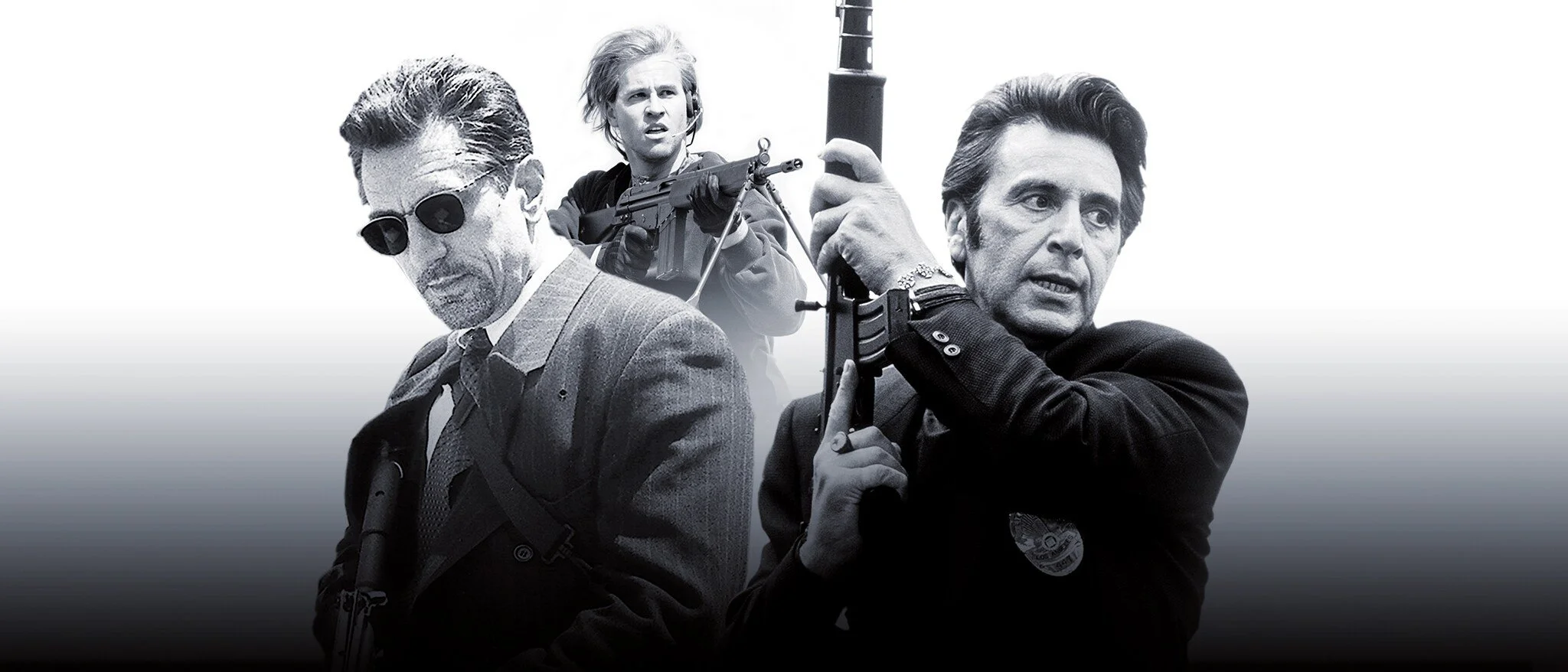Have seen Heat when it first came out and then later on the good old Laser Disc release. So, I was wondering why I couldn’t remember much about the movie when a friend told me it is on celluloid screening at my local cinema again.
I certainly remember something about the movie, like the famous café scene and the bank scene, but apart from that it didn’t really leave a strong impression on me despite the A-list cast with Al Pacino, Robert de Niro, Val Kilmer, Ashley Judd, Natalie Portman etc. It had never became a film that I would want in my collection and wanted to revisit from time to time. That really puzzled me.
So, I saw it with my friend in the cinema again the other night, and I understood.
The cinema was so packed that I was amazed. I thought, ‘this is a 30-year-old movie with nearly a full cast of last generation actors. How come it still packed the largest cinema in the complex with not only the last generation audiences?’ I guess it did establish itself as a classic for a wider audience, just not me.
The movie was 3 hours long and not once I had reached for my phone for the time. That was promising. But during the homerun act of the movie, I was restless, I kept wondering why is it still going on? What is the purpose of all these story arcs within the context of the story? It was at this point that I realised why Heat had never left a lasting impression on me, despite the apparent classic status for others – it just went on too long for a Hollywood ending.
There are stories to be told. There are story arcs to be wrapped up. There are stories that deserved to have a Hollywood ending. There are stories that should stop to highlight the imperfection of life. For me, Heat belongs to the last one. The memories of when the film should finish rested on the exact same point as I first saw it 30 years ago, and that was the imprint the film had on me. Despite my friend thought it was brilliant with everything wrapped up nicely at the end of the film, I was left unsatisfied and unwanting.
Maybe that’s just me. For me not every story needs a satisfying nicely all goes around comes around kind of ending. And for me, Heat definitely does not need one. You can be great in your job or what you are doing, but when you meet you exact opposite match, life will never be perfect. And I think that’s what I felt 30 years ago, and now 30 years later. There was a chance for the film to end in a white out shot that I definitely thought it should have, but it lingered and dragged on, took us to an unnecessary detour to wrap everything up in a standard package, and that left a bad taste in my mouth. And that bad tasted ended up blocking the impression that could have been there in my weirdly warped artistic mind for all these years.
That said, I am not saying that it is a bad movie. It was good, and in fact great up to that point. There were right doses of tension throughout, you care about the characters, their safety, their insecurities, their struggles and their dilemmas. And that is what made the movie feeling real and engaging. By attempting to, and eventually delivering, an ending that tried to please the Hollywood formular, from my personal point of view, completely destroyed the legacy that it could have for me. If I were teaching at a film school, I will be using Heat as a subject and example of what not to do in terms of storytelling.
In Chinese, we have a saying equivalent to ‘End it while it is good’. And I think that applies to Heat. But driven by whatever reason, it failed this hit this mark. For me, everything after that potential white out ending short did not add value to my experience. I started to not care. I started to feel restless in my seat. I started to feel I am wasting my time that I could have used for a catch up and post movie drink with my friend. The director tried to make all those scenes relevant to the plot, but they were not. Heat is a classic example of storytelling that should have left what happened in the end to the imagination of the audience, instead of spelling everything out and showing everything in detail. For me, that became a patronising experience as an audience member, and for me that is not what I want. If I wanted to be patronised, I would have gone to the Sunday services for free instead of paying money to go into the cinema. That’s how strongly I felt in the last arc of that formulaic ending.
It seems that I was complaining a lot about Heat. But I am not. All these was because I got so compassionate about the first two third of the movie that I just couldn't help but moan for the self-inflicted wounds at the end. Heat still remains to be a great movie for most of its 3-hour runtime. Just that I wished it ‘Ended while it was good’.




















